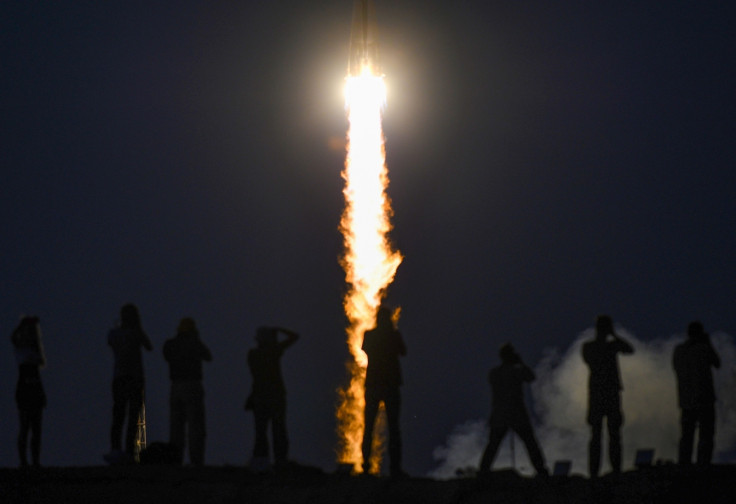Is it a meteor? Is it a ballistic missile? No, it's a Russian spaceship crashing to the earth

KEY POINTS
- "It's not something you see every day," said one Dubai-based astronomy expert.
- UAE government officials initially said the ship was a natural meteorite from space
A discarded Russian cargo spaceship burned across the night sky of the Arabian Peninsula, drawing gasps from Dubai to Riyadh before breaking up in the Earth's atmosphere and scattering in the Indian Ocean.
The fiery end Monday night (16 October) of the unmanned Progress MS-07 came as planned after it delivered 2.5 metric tonnes (2.75 tonnes) of water, food and scientific equipment to the astronauts aboard the International Space Station.
But its 80-second appearance over the skies of the United Arab Emirates stunned onlookers in a region where Iran regularly test-fires ballistic missiles and Shiite rebels in Yemen have threatened to use them against Abu Dhabi.
Even a day later, government officials still hadn't corrected their earlier statements identifying the object as a meteor.
The disposable spacecraft blasted off Saturday from the Russian-leased Baikonur launch complex in Kazakhstan.
Its rockets and stages earlier fell harmlessly and largely unnoticed into the atmosphere, said Hasan Ahmad al-Hariri, the CEO of the Dubai Astronomy Group.
After unloading it at the space station, astronauts sent the spaceship to its death as planned. Its path down was timed perfectly for it to be seen beginning from 7:35 pm Monday, al-Hariri said.
It streaked across the Dubai skyline behind the Burj Khalifa, the world's tallest building, drawing both stunned and anxious reaction from those watching.
"It was quite visible for the public," al-Hariri told The Associated Press. "It's not something you see every day. It was beautiful to see that thing up in the sky, disintegrating into pieces."
Soon, "people were banging me with calls", he said.
The governmental Dubai Media Office, citing the sheikhdom's Mohammed bin Rashid Space Centre, quickly described the aerial display a "meteorite". The UAE's General Civil Aviation Authority said in a statement that "the meteor was a natural and regular phenomenon at this time of the year".
But it wasn't a meteor. Instead, it was the 6.5-metre (21.3-foot)-long spaceship breaking up some 140 kilometres (87 miles) in the sky. The space centre, which hopes to launch a probe to Mars in 2020, did not respond to a request for comment on Tuesday.
The UAE announced in February it wanted to build the first city on Mars by 2117.
For al-Hariri, whose semi-governmental organisation hopes to soon open its Al Thuraya Astronomy Center along the flight path of the Dubai International Airport, the incident Monday night shows the importance of educating the public about the wonders of space.
He noted that despite the UAE's rapid development, its empty deserts offer beautiful viewing of the stars at night, including glimpses of the Milky Way.
"It was something that was really worth to look at," he said. "It was beautiful to see."





















